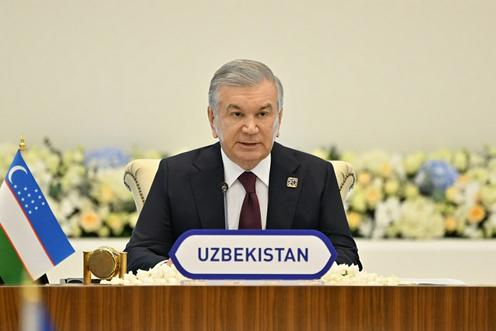President of Uzbekistan Shavkat Mirziyoyev opened the “Central Asia–European Union” summit, which began its session on April 4 in Samarkand. In his welcome address, the head of state focused on themes of global partnership, economic development, and the current geopolitical climate, according to his press service.
Mirziyoyev noted that the historic first meeting between Central Asian presidents and EU institutional leaders is taking place against the backdrop of increasingly unpredictable global developments.
“We are witnessing a rise in geopolitical tensions, security challenges, major interregional conflicts, and socioeconomic threats to sustainable development,” he stated.
“No region can tackle such complex challenges on its own, without broad international cooperation,” Mirziyoyev stressed. “In this context, Central Asia and the European Union are traditional partners, and the need for closer collaboration continues to grow.”
The president emphasized that Central Asia shares the EU’s commitment to the principles and norms of international law. He noted that regional states support launching a diplomatic process aimed at peacefully resolving the conflict in and around Ukraine.
According to Mirziyoyev, it is the region’s openness and willingness to engage in mutually beneficial cooperation that have become key conditions for ensuring security and prosperity.
He also congratulated Tajik President Emomali Rahmon and Kyrgyz President Sadyr Japarov on reaching a final agreement on long-standing border disputes among their countries and Uzbekistan.
Looking ahead, Mirziyoyev expressed confidence that collaboration will deepen both within the region and with outside partners. Major events are planned for the fall, including the seventh Consultative Meeting of Central Asian Heads of State, which will be hosted in Uzbekistan, along with the first session of the Central Asia–EU Interparliamentary Cooperation Forum.
The president also urged summit participants to prioritize cooperation in combatting terrorism, extremism, radicalism, drug trafficking, and illegal migration. He called for expanding practical engagement within the EU’s BOMCA and CADAP programs. Uzbekistan, he affirmed, is ready to continue contributing to Afghanistan’s peaceful development, including by integrating the country into regional economic frameworks through investment, infrastructure projects, and social sector recovery initiatives.
Mirziyoyev placed strong emphasis on the region’s economic momentum. According to EBRD analysts, Central Asia’s GDP is forecast to grow by up to 6 percent this year—well above global averages. In Uzbekistan, these projections are linked to rising infrastructure investment, economic liberalization, and business support. Trade with the EU is also expanding; over the past seven years, the region’s trade turnover with the European Union has grown several-fold, reaching €54 billion.
“We have launched effective cooperation platforms—ministerial meetings, forums, summits, and conferences are held regularly across key areas,” Mirziyoyev concluded.
“At the same time, I believe today’s summit should become a starting point for a new stage in the development of our multifaceted relationship.”










